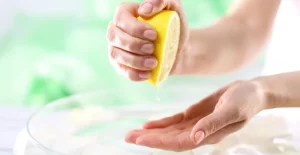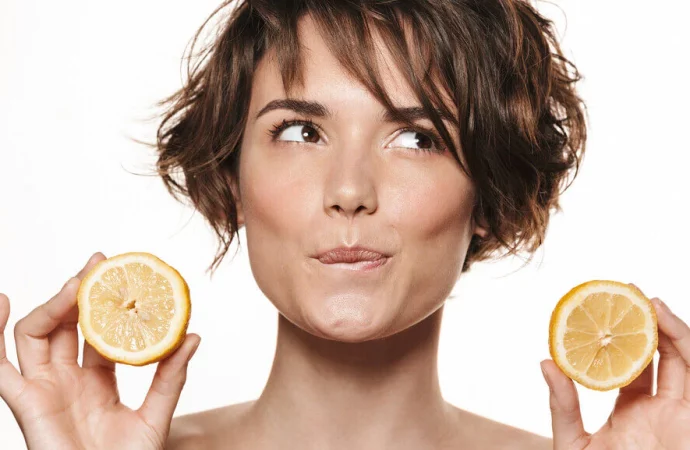Unveiling the Skin Hazards: 7 DIY Ingredients to Avoid In the quest for flawless Skin Hazards, many of us turn to do-it-yourself (DIY) skincare remedies. After all, the allure of using natural ingredients and holistic approaches is hard to resist. But what if I told you that some common DIY ingredients might be slowly damaging
Unveiling the Skin Hazards: 7 DIY Ingredients to Avoid
In the quest for flawless Skin Hazards, many of us turn to do-it-yourself (DIY) skincare remedies. After all, the allure of using natural ingredients and holistic approaches is hard to resist. But what if I told you that some common DIY ingredients might be slowly damaging your skin? To uncover the truth behind these seemingly harmless components, we’ve enlisted the expertise of Dr. Marisa Garshick, a board-certified dermatologist known for her insights into incorporating natural remedies into skincare routines. In this article, we’ll explore seven DIY ingredients that might be sabotaging your skin’s health and how to make informed choices for a radiant complexion.
The Deceptive Charm of Lemons: The Citrus Saboteur
Lemons have long been celebrated for their natural acidity and brightening properties. Many people believe that applying lemon juice can help fade dark spots and even out skin tone. However, Dr. Marisa Garshick reveals that lemons, while seemingly beneficial, can have adverse effects on your skin.
One of the primary concerns with using lemons on your skin is their acidic pH. The low pH of lemons can disrupt your skin’s natural pH balance, leading to irritation and redness. In some cases, it can even cause burns, especially if applied undiluted or in excessive amounts. Furthermore, lemons can make your skin more sensitive to sunlight, increasing the risk of UV damage.

Image by: https://trueskincarecenter.com/blog/is-lemon-juice-good-or-bad-for-your-skin/
Vinegar’s Acidic Assault: ACV – A Vinegar Culprit
Apple Cider Vinegar (ACV) has gained popularity as a natural remedy for various ailments, including skincare. However, Dr. Marisa Garshick warns against its acidic assault on your skin. ACV is highly acidic, and using it without proper dilution can have adverse effects.
One of the key concerns is pH imbalance. ACV’s acidity can disrupt your skin’s pH, leading to burns and irritation. It can also strip away your skin’s natural oils, causing dryness and potentially triggering allergic reactions. Over time, these effects can compromise your skin’s protective barrier.
Baking Soda Blunder: The pH Problem
Baking soda is a versatile ingredient often praised for its exfoliating properties. It’s commonly used in DIY face masks and scrubs to slough off dead skin cells. However, Dr. Marisa Garshick points out the pH problem associated with baking soda.
Baking soda is alkaline, and when applied to the skin, it can disrupt your skin’s natural pH balance. This disruption can lead to irritation and skin dryness. The abrasive nature of baking soda can also create microtears in the skin, making it more susceptible to damage and infection. Overexfoliation with baking soda can exacerbate these issues.
The Misleading Honey: Sweet Deception
Honey is often touted as a natural skincare savior due to its antibacterial and moisturizing properties. While raw honey can indeed offer skincare benefits, Dr. Marisa Garshick reveals that not all honey is created equal in the realm of skincare.
One of the potential risks associated with using honey on your skin is pore-clogging. Some types of honey, particularly those with higher sugar content, can clog pores and lead to acne breakouts. Additionally, honey can support the growth of harmful bacteria if not stored and used properly, which could lead to skin issues.
Menacing Cinnamon: Spice Gone Wrong
Cinnamon, with its aromatic and warming qualities, is a common addition to skincare DIYs. However, Dr. Marisa Garshick highlights the hazards of this spice when used on the skin.
Cinnamon contains compounds that can cause skin sensitization and irritation, especially when applied in high concentrations. Allergic reactions to cinnamon are not uncommon, and they can range from mild redness to more severe responses. It’s essential to be cautious when incorporating cinnamon into your skincare routine.
The Astringent Menace: Alcohol in Skincare
Alcohol-based toners and astringents are often used in DIY skincare as they can make the skin feel clean and tight. However, Dr. Marisa Garshick warns against the astringent menace of alcohol.
Alcohol can be extremely drying to the skin, leading to moisture loss and potential damage to the skin barrier. It can also cause skin sensitivity and irritation, especially in individuals with sensitive or dry skin. Over time, prolonged use of alcohol-based products can compromise your skin’s health.
Overzealous Exfoliation: Scrubbing Regrets
Exfoliation is a vital part of any skincare routine, as it helps remove dead skin cells and promote a more radiant complexion. However, there’s a fine line between beneficial exfoliation and overzealous scrubbing, as Dr. Marisa Garshick advises.
Overzealous exfoliation, whether through physical scrubs or harsh chemical exfoliants, can lead to microtears in the skin. These microtears can result in redness, sensitivity, and increased vulnerability to environmental stressors. Finding the right balance of exfoliation is key to maintaining healthy skin.
Conclusion:
As Dr. Marisa Garshick has unveiled, not all DIY ingredients are as skin-friendly as they may seem. While natural remedies can offer benefits, it’s crucial to understand the potential hazards they present and make informed choices for your skincare routine. Seeking professional advice, especially from a board-certified dermatologist, is a wise step when incorporating new ingredients into your skincare regimen.
Remember that sometimes, natural isn’t always better when it comes to skincare. Prioritize your skin’s health by staying informed, conducting patch tests before using new ingredients, and embracing safer alternatives. Your skin will thank you for it, and you’ll be on your way to a radiant and healthy complexion.

















Leave a Comment
Your email address will not be published. Required fields are marked with *